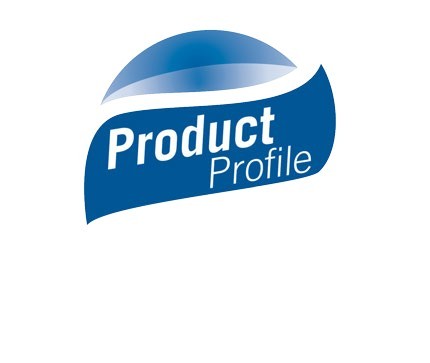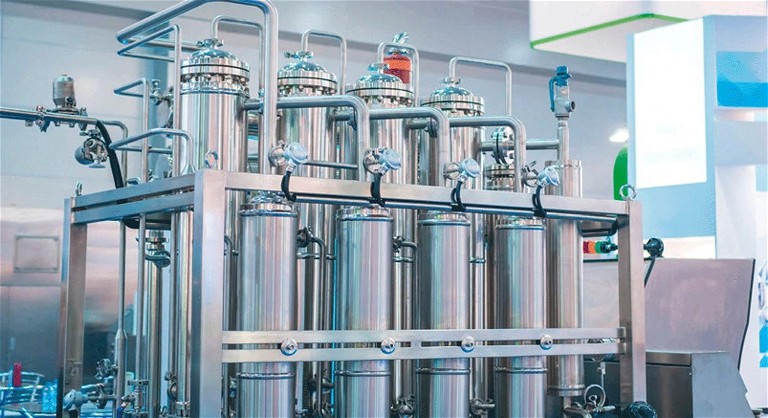
Lab automation: the future of life sciences
'Increasing economic challenges like market vitality, product diversification and cost pressure lead to the need for faster process design' − and that is not to mention the shorter innovation cycles and increasing demand for small batch production.1 The Module Type Package Suite from COPA-DATA meets these needs
Guiseppe Menin at COPA-DATA
Module type package explained
Module Type Package (MTP) describes the cross-industry and cross-manufacturer standardisation of the interfaces of different pieces of equipment, providing a framework for standardised equipment data models and language to stream interoperability. In simpler terms, MTP ensures different machines in manufacturing are broken down into smaller modules and can be made to speak the same language, thus supporting interchangeability.
The MTP Suite can be compared to a home office. Regardless of the brand of your keyboard, printer or mouse, you should be able to combine them without encountering any problems − just like a user can plug-and-print in an office context, they can plug-and-produce with MTP.
Integration with POL
In pharmaceutical production, modular functionality is achieved by integrating MTP into the process orchestration layer (zenon POL). This is essentially the hub of a facility's technology, where different operations are directed and initiated. In the zenon MTP Suite, process orchestration is simple: once MTP files are implemented, each module is aligned with the service parameters. Zenon POL and the zenon Engineering Studio − zenon’s central engineering studio for automation − interlock in a fully automated manner.

All work steps are then automated in the Engineering Studio and transferred to the Service Engine via the POL, resulting in an automatically generated process control system in very few steps. With this groundwork laid, manufacturers can then craft batch recipes in line with the globally recognised ISA-88 standard. Just like that, modular production is underway.
Bottom-line benefits
The MTP model offers swifter time-to-market compared to many traditional methods, thanks to the seamless integration of prebuilt modules. This is particularly interesting for pharmaceutical manufacturers that are under pressure to manufacture a diverse range of medicines quickly and cheaply. The zenon MTP Suite allows life sciences organisations to achieve faster production and innovation cycles without the difficulties of reconfiguring a production line − hence the term plug-and-produce. The methodology can also yield significant financial benefits by reducing production costs by up to 40%. This is achieved through the improved economics of smaller batches and concurrently reducing maintenance and storage expenses. COPA-DATA’s MTP Suite has already been deployed successfully at Merck’s R&D laboratories of the Electronics Technology Center in Darmstadt, Germany.2 The installation resulted in more efficient interaction between production and R&D and accelerated the market launch of new products by up to 50%. “During market launch, speed is a crucial competitive advantage and is especially important for our products,” said Hajo Neumann, head of Integrated Supply Chain within the Electronics business sector of Merck. 3
MTP For legacy equipment
Even for pharmaceutical facilities housing legacy equipment, the zenon MTP Suite provides a transformative solution. A key feature is the MTP Editor, a user-friendly tool designed to facilitate the creation and modification of MTP files, catering to both new and legacy systems. In real time, each step is meticulously scrutinised to ensure compliance with the VDI/VDE/NAMUR 2658 standard, underscoring the commitment to quality control.COPA-DATA's Validation Service for MTP files also improves compatibility, even during configuration of new MTP files. Once moved into the zenon MTP Suite, these files find their home in a centralised database, giving operators a panoramic view of all MTP files across new and old machines. These files function as templates for specific equipment and can be used for management of progress equipment assembly (PEA).
Within the aforementioned zenon POL, users can access all basic functions for batch control, including reports, alarms and audit trails that can be generated at the push of a button. For on-the-ground control, the PEA Software Suite offers a local control system stationed directly on the machinery with a user-centric Human-Machine Interface (HMI) that helps operators to assure data integrity in congruence with FDA 21 CFR Part 11 and Annex 11 of the EU GMP guidelines.
Realise the potential with zenon
Modular production is poised to reshape the manufacturing sector, as indicated by the PwC survey showing increasing adoption rates. As manufacturing systems pivot towards agility and flexibility and the pharmaceutical sector follows suit, COPA-DATA's Module Type Package (MTP) Suite is an ideal solution.
For more information on the zenon MTP Suite, visit: copadata.com/en/industries/mtp-modular-production
References

COPA-DATA is an independent software manufacturer that specialises in digitalisation for the manufacturing industry and energy sector. Its zenon software platform enables users worldwide to automate, manage, monitor, integrate and optimise machines, equipment, buildings and power grids. COPA-DATA combines decades of experience in automation with the potential of digital transformation. In this way, the company supports its customers to achieve their objectives more easily, faster and more efficiently. The family-owned business was founded by Thomas Punzenberger in 1987 in Salzburg, Austria. In 2022, with more than 350 employees worldwide, it generated a revenue of $69m.